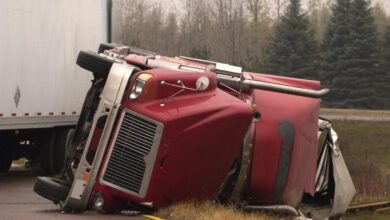Florida Diminished Value Claims: Your Rights in the Sunshine State

Florida’s unique position as a peninsula state with year-round warm weather, tourist traffic, and diverse population creates distinctive challenges for vehicle accident claims. The state’s approach to diminished value combines specific statutory provisions with evolving case law that generally supports recovery rights. Understanding Florida’s particular requirements, from its no-fault insurance system to its regional market variations, helps maximize your diminished value recovery after an accident.
Florida’s Legal Foundation for Diminished Value Recovery
Florida law recognizes diminished value as a legitimate element of property damage claims, though the state’s no-fault insurance system adds complexity. Florida courts have consistently held that vehicle owners can recover diminished value as part of their property damage claims, acknowledging that repaired vehicles suffer permanent market value loss regardless of repair quality.
The leading Florida case law establishes clear precedent for diminished value recovery. Florida’s appellate courts have rejected insurance company arguments that repairs alone make victims whole, recognizing that modern vehicle history reporting creates permanent value impacts. These decisions provide strong legal foundation for pursuing claims, particularly when working with Florida diminished value appraisal experts.
Florida’s statutory framework supports diminished value claims through provisions requiring full compensation for property damage. The Florida Statutes define recoverable damages broadly enough to encompass market value losses beyond repair costs. This statutory support, combined with favorable case law, creates a relatively supportive environment for diminished value claims despite the state’s complex insurance laws.
Navigating Florida’s No-Fault Insurance System
Florida’s no-fault insurance system creates unique considerations for diminished value claims. Under Florida law, your own Personal Injury Protection (PIP) insurance covers medical expenses and lost wages regardless of fault, but property damage claims including diminished value still follow traditional fault-based rules. This distinction is crucial for understanding your recovery options.
For property damage exceeding Florida’s $10,000 threshold, you can pursue claims against at-fault drivers’ insurance. This includes diminished value claims, which aren’t subject to no-fault limitations. However, Florida’s comparative negligence rules apply, meaning your recovery reduces by your percentage of fault. Understanding these interactions between no-fault and traditional tort principles helps maximize recovery.
First-party diminished value claims under your own collision coverage face different considerations in Florida. While some insurers argue that Florida’s no-fault principles limit first-party claims, courts have generally rejected blanket exclusions. Success often depends on specific policy language and whether exclusions were clearly communicated as required by Florida insurance regulations.
Florida’s Four-Year Statute of Limitations
Florida provides a four-year statute of limitations for negligence-based property damage claims, including diminished value. This relatively generous timeframe compared to many states might suggest flexibility, but prompt action remains crucial. The four-year period begins on the accident date, creating a firm deadline regardless of when repairs complete or diminished value becomes apparent.
Claims against Florida government entities face much shorter deadlines under sovereign immunity statutes. Formal notice requirements and shortened limitation periods can trap unwary claimants. Additionally, some insurance policies impose shorter contractual deadlines for first-party claims, potentially limiting the practical timeframe for pursuing recovery.
While four years seems ample, Florida’s transient population and seasonal variations complicate evidence preservation. Witnesses relocate, repair shops close, and documentation disappears. Additionally, Florida’s humid climate can accelerate vehicle deterioration, making it harder to distinguish accident-related issues from environmental wear. Most successful Florida claims begin within months, not years, of accidents.
Regional Market Variations Across Florida
Florida’s diverse regions create distinct vehicle markets affecting diminished value calculations. South Florida’s Miami-Dade and Broward counties feature international luxury car markets where accident history severely impacts values. Central Florida’s theme park corridor shows different patterns with rental car fleets and tourist traffic. The Panhandle and rural areas present yet another dynamic where practical transportation needs influence buyer behavior.
Coastal areas face unique considerations due to hurricane risks and salt air exposure. Buyers in these regions particularly scrutinize repair quality and corrosion protection, amplifying diminished value concerns. Accident repairs in coastal areas raise questions about long-term durability that inland repairs don’t face, requiring specific documentation of protective measures.
Florida’s large retiree population affects used car markets differently than in younger states. Many Florida buyers seek reliable, comfortable vehicles for fixed-income budgets, making accident history a significant concern. Specialized Florida diminished value appraisals must account for these demographic factors affecting regional markets.
Documentation Strategies for Florida’s Unique Conditions
Successful Florida diminished value claims require documentation addressing the state’s specific challenges. Begin with immediate, comprehensive photography of accident damage. Florida’s afternoon thunderstorms and intense sun can quickly alter accident scenes, making prompt documentation essential. Include context shots showing road conditions, as Florida’s sudden weather changes often contribute to accidents.
Repair documentation in Florida should specifically address corrosion protection and water intrusion prevention. The state’s humidity and rainfall create ongoing concerns about repair durability. Obtain detailed records of rust prevention treatments, sealing procedures, and any hurricane-related protective measures applied during repairs.
Market evidence must reflect Florida’s seasonal variations and tourist impacts. Vehicle values fluctuate with seasonal population changes, and rental car company practices affect used car supplies. Understanding these patterns and timing market analysis appropriately strengthens diminished value calculations. Gather evidence from your specific region rather than relying on statewide averages.
Insurance Company Tactics in Florida
Insurance companies in Florida employ sophisticated tactics leveraging the state’s complex insurance laws. Common arguments include misapplying no-fault principles to property damage claims, exploiting confusion about PIP versus property damage coverage, claiming that Florida’s weather makes all vehicles diminish rapidly regardless of accidents, and using hurricane damage as a pretext to minimize accident-related diminished value.
Florida’s Office of Insurance Regulation provides consumer protections against unfair claims practices. The state tracks insurer complaint ratios and can take enforcement action for patterns of abuse. Understanding how to leverage these regulatory tools, even without filing formal complaints, often improves insurer behavior during negotiations.
Florida’s bad faith insurance laws provide powerful remedies for unreasonable claims handling. The state allows recovery of damages beyond policy limits when insurers act in bad faith, creating significant exposure that motivates fair dealing. Documenting all interactions carefully preserves potential bad faith claims that can transform negotiating dynamics.
Special Vehicle Considerations in Florida
Florida’s unique vehicle population requires tailored approaches to diminished value claims. Luxury and exotic cars, particularly prevalent in Miami Beach, Naples, and other affluent areas, face severe diminished value impacts. The international nature of these markets means accident history affects global marketability, not just local sales.
Recreational vehicles and boats, essential to Florida’s lifestyle, present special challenges. RV accidents raise concerns about structural integrity for hurricane evacuation use. Marine equipment transported on Florida roads faces scrutiny about accident impacts on corrosion resistance. These lifestyle vehicles often suffer disproportionate diminished value due to their specialized uses.
Commercial vehicles serving Florida’s tourism industry face unique pressures. Hotel shuttles, tour buses, and rental cars must maintain appearance standards that accident history compromises. Many tourism-related businesses prohibit purchasing vehicles with accident histories, severely limiting resale markets for damaged commercial vehicles.
Environmental Factors Affecting Florida Claims
Florida’s environment creates unique considerations for diminished value claims. Hurricane exposure means buyers scrutinize any repairs that might compromise structural integrity or water resistance. Even minor accidents raise concerns about vehicles’ ability to withstand future storms, amplifying diminished value beyond what similar damage might cause elsewhere.
The state’s intense UV exposure accelerates paint fading and plastic degradation, making color matching and finish quality critical concerns. Buyers worry that repaired areas will age differently than original surfaces. Documenting UV-resistant materials and professional paint application helps address these Florida-specific concerns.
Salt air exposure in coastal areas creates corrosion concerns that amplify accident damage impacts. Repairs that might be acceptable inland face skepticism near beaches. Florida diminished value claim professionals understand how to document corrosion protection measures that address these regional concerns.
Maximizing Your Florida Recovery
Successfully pursuing diminished value claims in Florida requires understanding the state’s unique legal and environmental landscape. Begin by clearly distinguishing property damage claims from PIP coverage, as confusion about Florida’s no-fault system can complicate recovery. Document everything immediately, as Florida’s weather and transient population make evidence preservation challenging.
Consider engaging professional help familiar with Florida’s specific requirements. The state’s complex insurance laws and diverse markets benefit from experienced navigation. Professional appraisers who understand Florida’s regional variations and environmental factors can identify all recoverable losses and present compelling evidence.
Be prepared for sophisticated insurance company resistance leveraging Florida’s complex laws. However, understand that the state’s consumer protections and bad faith remedies provide powerful tools for achieving fair compensation. Persistence, combined with strong documentation addressing Florida’s unique factors, typically yields favorable results in the Sunshine State’s diminished value claim environment.




